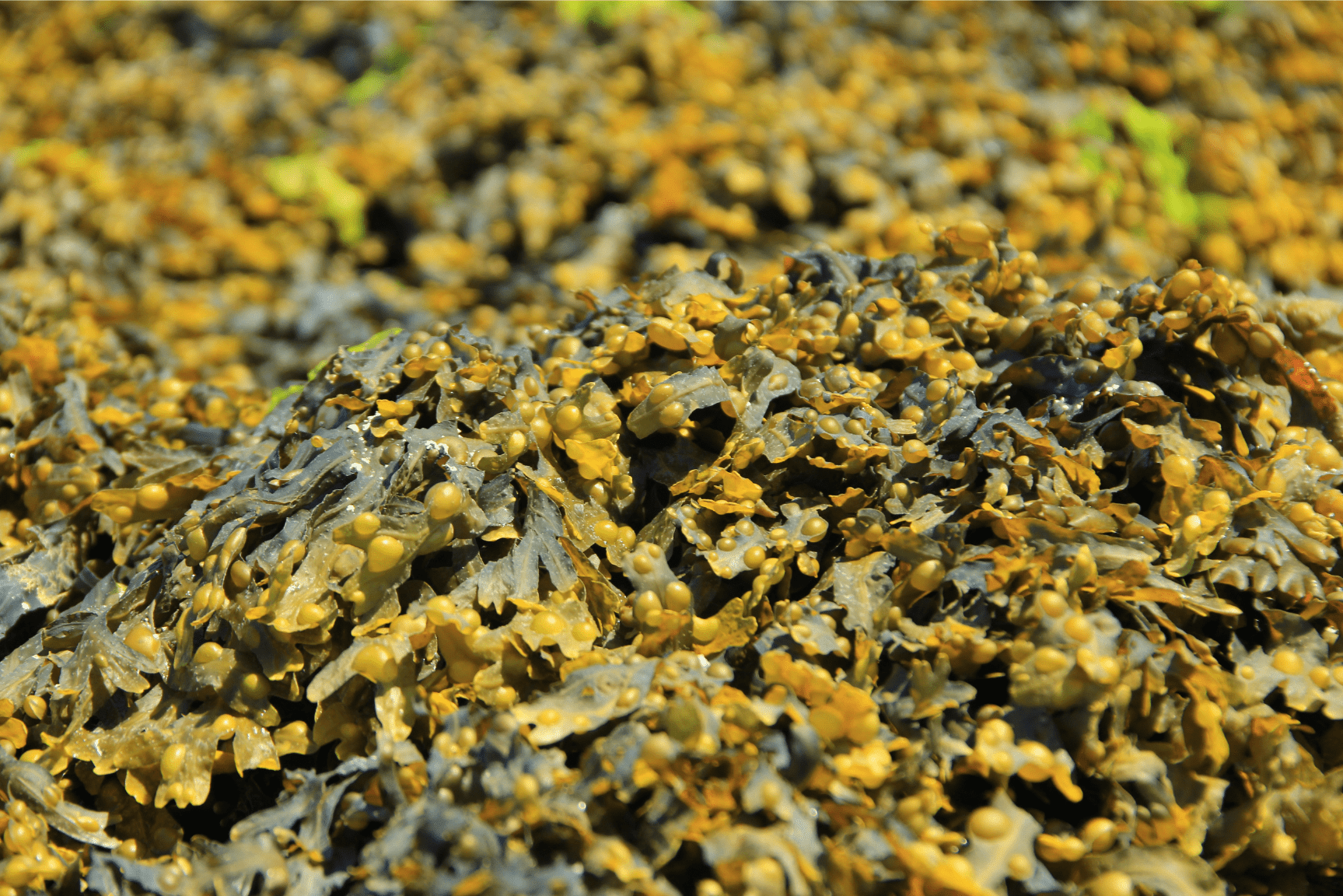

Bladderwrack is a natural remedy that has been used for centuries. It is a brown seaweed that is edible. Bladderwrack is available in many forms, such as dried, powdered, as a tea, or as a herbal supplement, especially in traditional medicine for thyroid issues. But its effectiveness remains questionable.
Bladderwrack is a type of brown seaweed that is believed to be associated with traditional medicine. It is known by many other names including bladder fucus, dyer’s fucus, rock wreck, rockweed, and black tang.
Bladderwrack grows mostly on the coasts of the Atlantic and Pacific Oceans, the North and Baltic Seas, as well as various waters of Canada and the United States. Bladderwrack is a herb growing up to 35 inches (90 cm) tall.
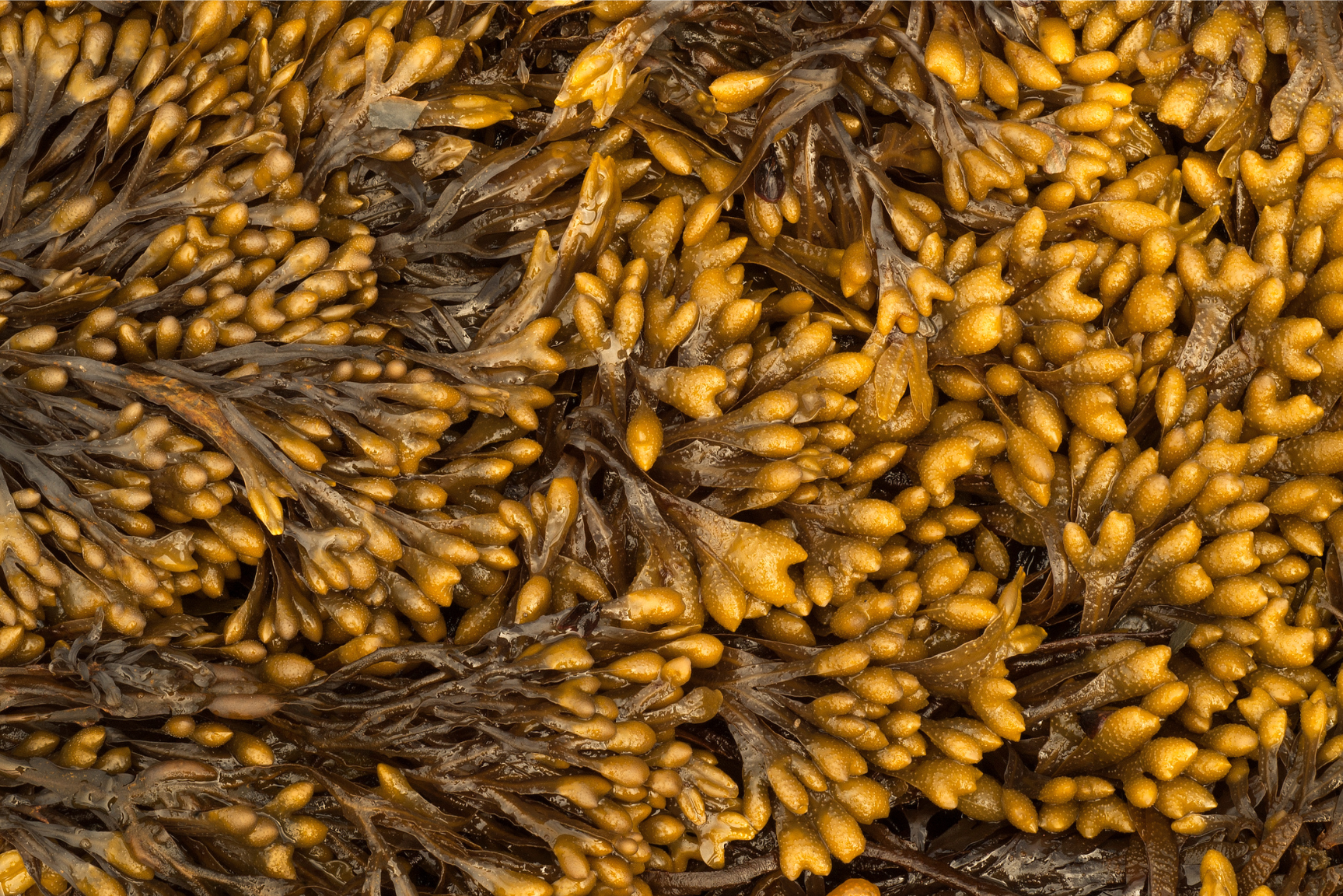
It has been used for centuries in traditional medicine to treat a variety of conditions, such as, severe obesity, severe joint pain, discoloration or aging of the skin, digestive problems, urinary tract infections, and thyroid dysfunction, including hyperthyroidism, and poor development of hypothyroidism.
It is particularly rich in vitamins, minerals, and antioxidants, leading some users to believe that bladderwrack’s impressive nutrient profile may provide health benefits, although some critics argue that these claims are inconsistent with research.
This article about bladderwrack tells you everything you need to know and is looking for, including some of its benefits, uses, and some of its side effects.
Bladderwrack, also known as Fucus vesiculosus, is a type of edible brown seaweed that belongs to the kelp family. This nutrient-dense seaweed has been a staple in alternative and folk medicine for centuries, revered for its high nutritional value, particularly its iodine content. Bladderwrack is rich in dietary fiber, vitamins, and minerals, making it a powerhouse of nutrients. Historically, it has been used to address various health issues, including thyroid disorders, iodine deficiency, and digestive problems. Its exceptional combination of macro- and micronutrients makes it a valuable addition to a balanced diet.
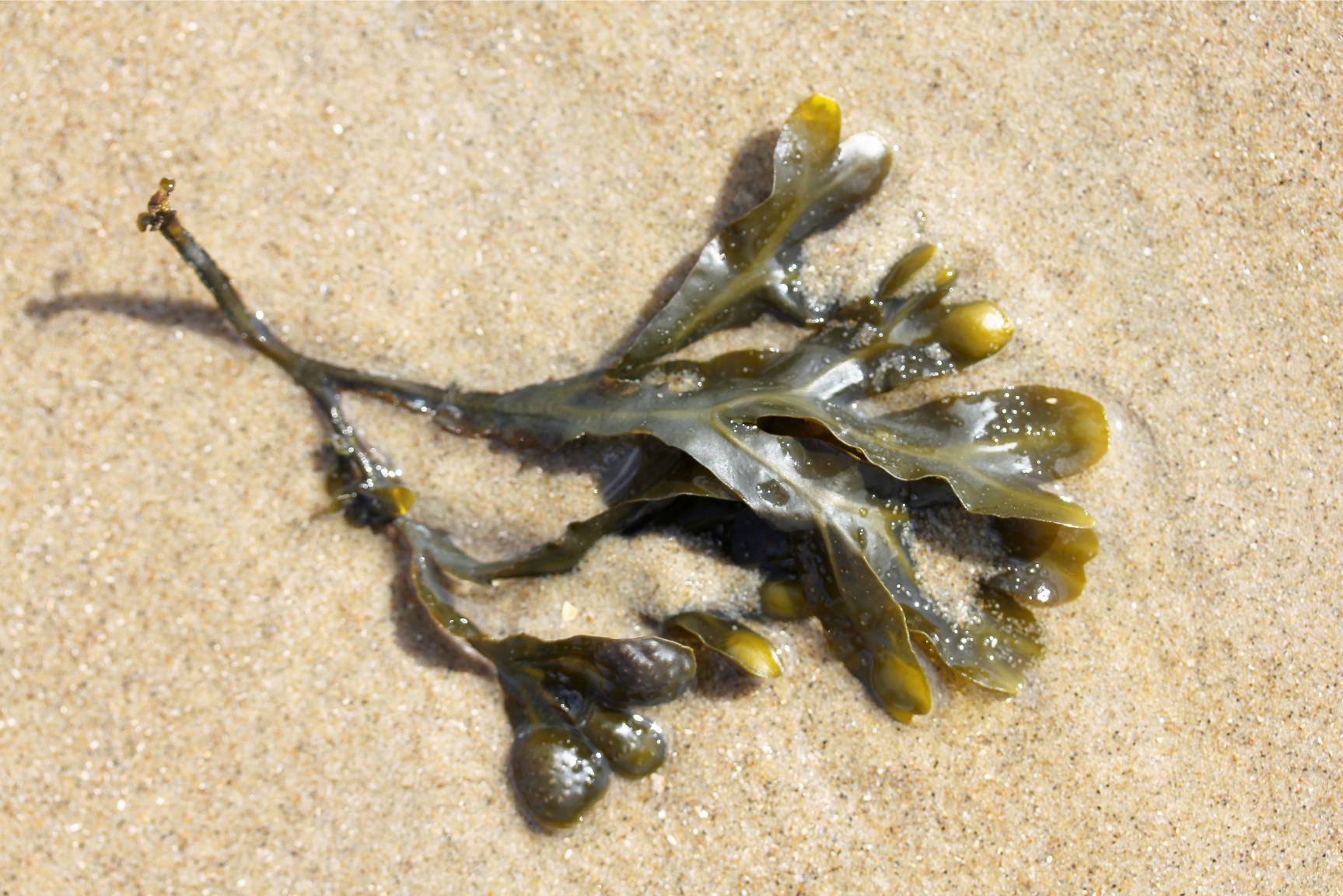
For ages, seaweed has been known as a powerful nutrient in many cultures and people have included it as part of their regular diet. Bladderwrack is a seaweed that is rich in vitamins and minerals, including calcium, iodine, magnesium, potassium, sodium, zinc, and vitamins A and C. Another great quality of this is that it contains high amounts of phytochemicals. Alginic acid in bladderwrack can help mitigate the effects of stomach acid and alleviate symptoms of GERD.
Another great quality of bladderwrack is that it is rich in fiber, which is helpful for a healthy intestine of the body. It is particularly beneficial due to its high content of alginic acid and fucoidan, which have been shown to have health-promoting properties
There is little proof to support the use of bladderwrack for weight reduction, arthritis, joint pain, fertility, and urinary tract infections, despite several bladder health claims. Most of the research on bladderwrack focuses on its potential effects on conditions such as thyroid disease and skin health, as well as its anti-inflammatory properties.
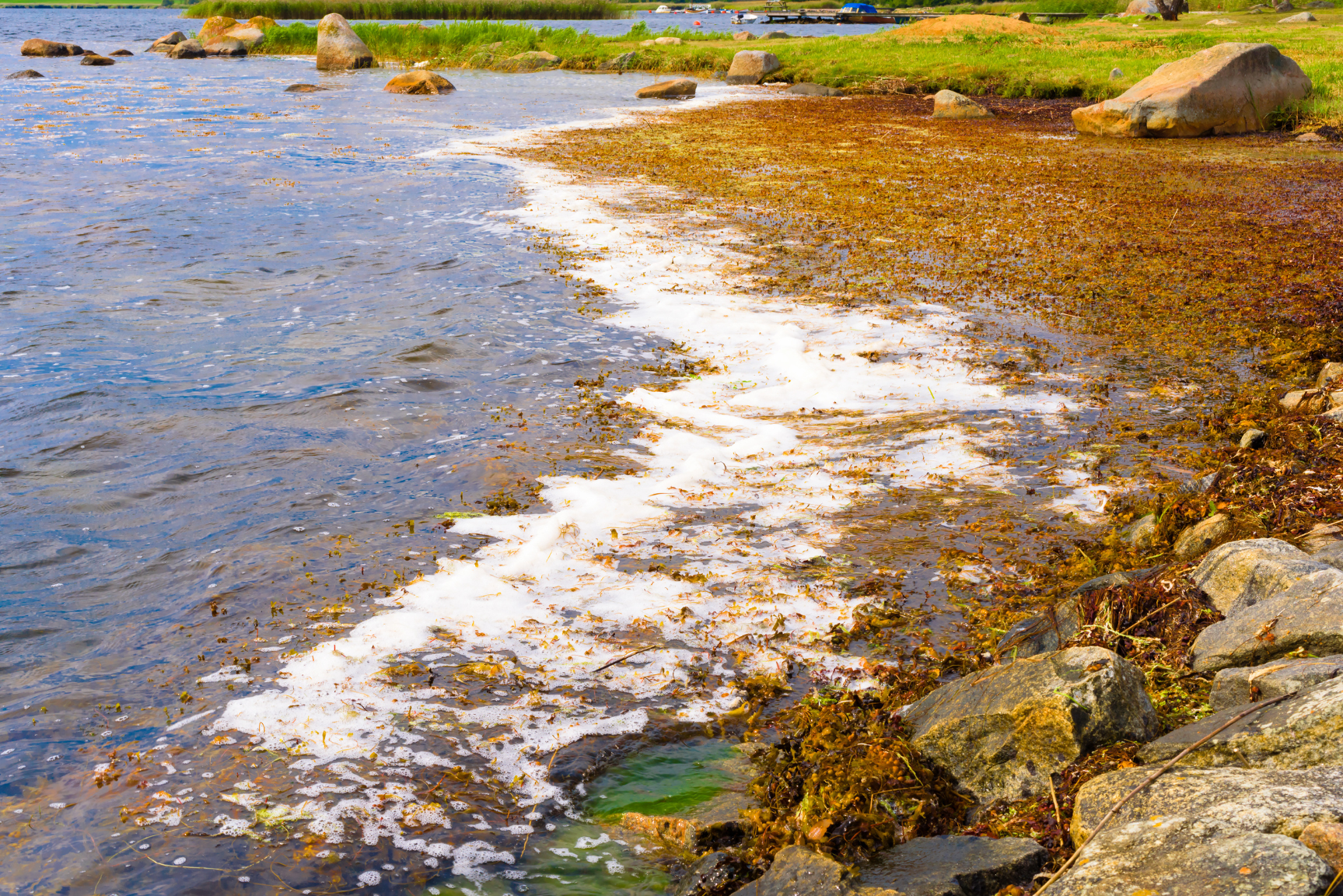
Iodine is an element that produces the thyroid hormones triiodothyronine (T3) and thyroxine (T4), and bladderwrack’s high iodine content helps support thyroid health. Your metabolism is regulated by these hormones, which also promote healthy growth and neurological development.
It contains a variety of properties, from phlorotannins to other antioxidants such as fucoxanthin, alginic acid, fucoidan, and vitamins A and C. Phlorotannins and fucoxanthin, two of its greatest qualities, are well-known for their potent antioxidant activity and capacity to eliminate free radicals.
Free radicals are considered to be harmful compounds because they can damage cells and lead to chronic diseases and premature aging. There have been some test-tube and rat studies that have shown that algae like bladderwrack have promising anti-inflammatory properties and may help reduce the risk of developing tumors, blood sugar levels, and heart disease.
Additionally, a large survey of 40,700 men and 45,450 women found that daily intake of wrack seaweed, which contains compounds similar to bladderwrack, reduced the risk of heart disease such as heart attack or blockage by 14%.
Beyond this and others, there have been very few human trials that show modest benefits in blood sugar control.
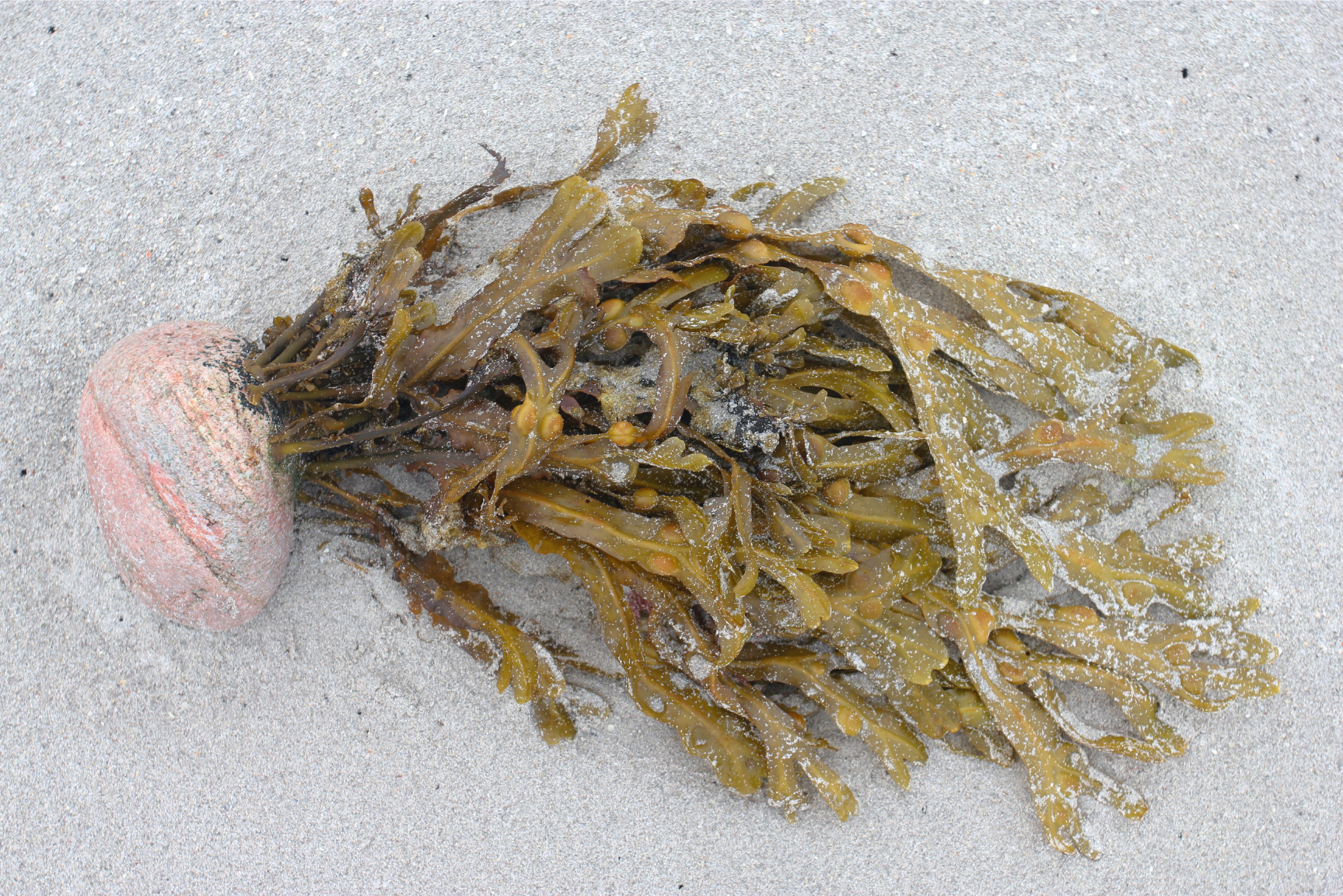
Bladderwrack is known for its positive impact on digestive health, thanks to its high content of dietary fiber and alginic acid. Alginic acid helps to soothe the sensitive stomach lining and reduce inflammation, making bladderwrack an effective natural remedy for conditions such as irritable bowel syndrome (IBS), peptic ulcers, and stomach ulcers. Additionally, the dietary fiber in bladderwrack promotes regular bowel movements and helps prevent constipation. Its anti-inflammatory properties also make it a potential natural remedy for gastroesophageal reflux disease (GERD), providing relief from discomfort and promoting overall digestive health.
The use of bladderwrack is also very helpful for skin problems such as cellulite, skin aging such as wrinkles or even an aging appearance, and can be helpful as a topical treatment for irritations. Extensive research has shown that the antioxidant properties of bladderwrack, namely fucoidan, can help stimulate the right amount of collagen combination in the skin, which can help improve appearance of cellulite, as well as enhance skin healing and delay premature skin aging, also known as skin sagging.
In the initial stage of a two-stage investigation, users who applied bladderwrack extract to skin samples experienced a 230% increase in collagen production in the skin, while the second phase showed no significant improvement in the control group.
1. bleeding problems
2. thyroid problems
3. diabetes
Bladderwrack may interact with certain medications, so it is crucial to consult a healthcare provider before incorporating bladderwrack supplements into your routine. Individuals taking thyroid hormone medications, blood thinners, or antiarrhythmic medications should exercise caution. Bladderwrack’s high iodine content can exacerbate certain thyroid conditions, such as hyperthyroidism, making it essential to seek medical advice before using it as a treatment. Always discuss with your doctor to ensure that bladderwrack is safe and appropriate for your specific health needs.
There is no officially recommended dose for bladderwrack, but most bladderwrack supplements are available in 500 mg doses. Bladderwrack powder can be used as a seasoning in stews, soups, salads, and smoothies, or combined with water or facial scrubs for skin-related benefits. Bladderwrack tea can be made by steeping the dried seaweed in hot water, offering a soothing and nutritious beverage. It is essential to consult a healthcare professional before using bladderwrack supplements, especially if you have any underlying health conditions or are taking medications. This ensures that you can safely enjoy the benefits of this versatile seaweed.
Although Bladderwreck is known by most people to be a safe product, it has been found that Bladderwreck may cause some unwanted side effects. It's evidenced that bladderwrack is possibly safe to apply to the skin.
Avoid applying Bladderwreck to open wounds or burns. If you experience any adverse reactions such as skin rashes or any other allergic reactions, stop using this product immediately. Just like other seaweed fertilizers are recommended to be consumed in moderation, bladderwrack is safe when consumed in moderation.
However, BLADDERWRACK contains a large amount of iodine, salt, and other heavy metals, which can pose a risk to one's health, especially when taken as a supplement in your routine.
In one instance, a 65-year-old man who took doses of bladderwrack and lithium, a drug used to treat bipolar disorder, developed hyperthyroidism.
As mentioned in this article, bladderwrack can be fatal for pregnant or breastfeeding women, and people suffering from thyroid disorders should also avoid consuming it.
Until further research confirms this, avoid taking any form of bladderwrack supplements and seek advice from an experienced healthcare provider before eating or drinking any of it.
It is not confirmed anywhere that there is an officially recommended dosage for bladderwrack. As everyone has different health problems, more research is needed to determine which forms and doses are most effective for each condition. Please follow the instructions given on the packaging of Bladderwrack supplement before using it.
While most health claims are based on this, some limited research supports it as an effective and beneficial treatment for bladderwrack-related problems, such as obesity, joint inflammation or pain, fertility, and severe urinary tract infections.
Before using a bladderwrack product, consult your healthcare provider to make sure it is right for you. Although it can be taken in any form, it is better to use it as per the advice of a doctor. (1,2)
Share:
Does Ashwagandha Make You Sleepy? Benefits, Effects, and Sleep Quality Insights
Creatine Before and After: Real Results and Benefits You Can Expect